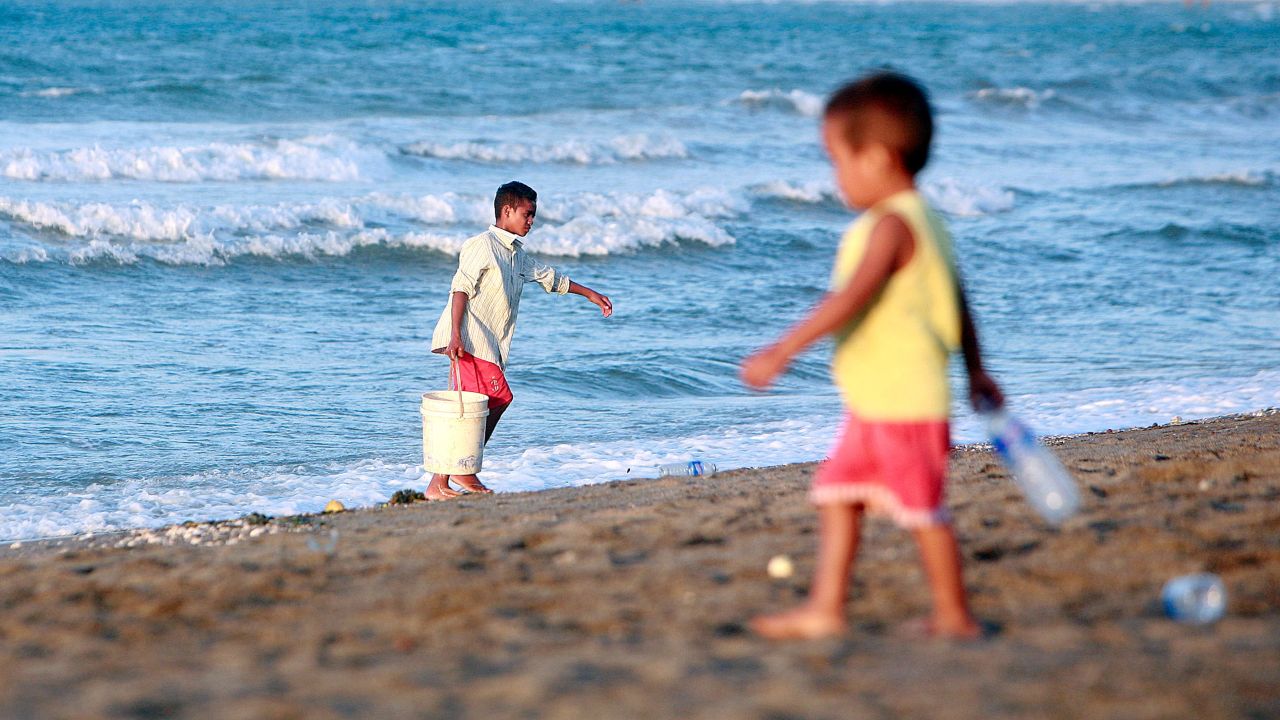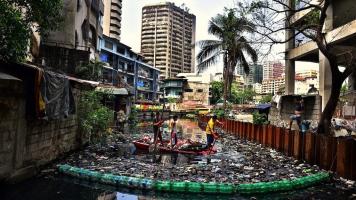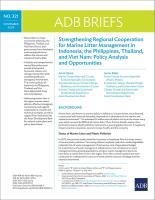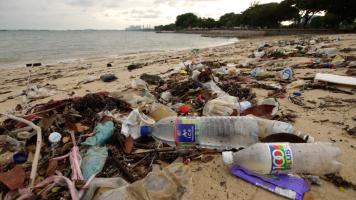
Before joining the initiative, ADB’s Healthy Oceans Program mobilized nearly $4 billion in cumulative ocean investments between 2019 and 2024. Photo credit: ADB.
The new phase of the largest multilateral effort to reduce marine litter focuses on projects in coastal areas, particularly in Asia, Africa, and Latin America.
A partnership of six public development banks, including ADB, has set a financing target of €3 billion ($3.4 billion) for the years 2026 to 2030 to drastically reduce plastic pollution in the world’s oceans.
Launched at the Third United Nations Ocean Conference in Nice, France, Clean Oceans Initiative 2.0 is the new phase of the largest multilateral effort to reduce marine litter. It seeks to increase impact by placing a stronger emphasis on waste prevention and supporting circular economy solutions, including projects that develop alternatives to plastic. It focuses on projects in coastal areas that address plastic pollution entering the ocean, particularly in Asia, Africa, and Latin America, where inadequate waste and water management in major river systems remains a critical challenge. Most ocean plastics originate from mismanaged waste on land, often carried by rivers due to inadequate waste collection and water treatment, especially in rapidly growing cities.
Without urgent action, the United Nations sees the amount of plastic waste entering aquatic environments increasing to 23 million to 37 million tonnes per year by 2040 from around 11 million tonnes in 2021. By 2050, there could be more plastic in the ocean than fish.
The Clean Oceans Initiative was started in 2018 by the European Investment Bank (EIB), Agence Française de Développement (AFD), and Kreditanstalt für Wiederaufbau (KfW), with the goal of financing €2 billion in projects by the end of 2023. They were later joined by Cassa Depositi e Prestiti (CDP), and European Bank for Reconstruction and Development (EBRD). ADB is the newest member and brings crucial regional expertise to the initiative.
Some of the highest amounts of plastic enter the ocean in Asia. Southeast Asia in particular is a hotspot for marine plastic pollution. An ADB study notes efforts to combat plastic pollution in Indonesia, the Philippines, Thailand, and Viet Nam, where marine litter is a major concern. These include not just national policies to address sources and impacts but also regional cooperation to protect marine ecosystems since ocean plastic is a transboundary issue.
The Clean Oceans Initiative has already met its 2025 target of €4 billion in long-term financing for public and private sector projects aimed at reducing discharge of plastics, micro-plastics, and other litter into the oceans through the improved management of solid waste, wastewater, and stormwater. Project examples include improved wastewater treatment in the People’s Republic of China, Egypt, South Africa, and Sri Lanka; solid waste management in Senegal and Togo; and flood protection in Benin, Ecuador, and Morocco.
Before joining the initiative, ADB had already made a number of investments in this area. ADB’s Healthy Oceans Program mobilized nearly $4 billion in cumulative ocean investments between 2019 and 2024, with an ambition to scale up further. The program helps de-risk nature-based solutions and attract private capital into sectors typically underserved by traditional finance. Approximately 45% of all ocean-related projects at ADB are focused on waste and wastewater management that reduce pollution entering marine ecosystems.
In Southeast Asia, ADB-funded projects include the following:
- a $500-million policy-based loan to support Indonesia’s National Action Plan for Handling Marine Debris, which aims to reduce plastic waste entering oceans by 70% by 2025;
- a $100 million financing package to reduce the environmental impact of plastic and promote a circular economy by boosting the capacity of Thailand-listed Indorama Ventures Public Company Limited to recycle plastic plastic at its plants in India, Indonesia, the Philippines, and Thailand; and
- a $44.2 million blue loan with PT ALBA Tridi Plastics Recycling Indonesia to establish a polyethylene terephthalate recycling facility in Central Java.


